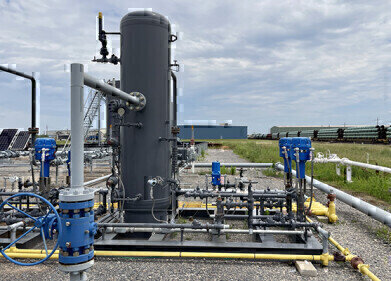Air Clean Up
2020 vs 2019 - How Did COVID-19 Impact Annual Emissions?
Feb 27 2021
The lives of almost every living person on Earth have been drastically upended over the last 12 months, so it should come as little surprise that coronavirus has brought with it a number of environmental implications, as well. The most striking of these has been the drop-off in emissions engendered by lockdowns and quarantine measures imposed across the globe.
With far fewer vehicles on our roads and far fewer workplaces open for business, the demand for energy in the first quarter of 2020 was significantly below that of the same period in 2019. This has translated into a significant drop-off in emissions for Q1 and, given the way that the rest of the year eventually panned out, a similar trend is expected to be revealed once the data becomes available.
By the numbers
Carbon emissions across the planet saw a 5% fall between 2019 and 2020, with most of that discrepancy explained by a reduction in the demand for coal. Emissions from that polluting industry fell by 8%, while those associated with oil dropped by 4.5% and natural gas-related emissions were down by 2.3%.
The reduction in CO2 emissions was actually more noticeable than the drop-off in energy demands, which fell by 3.8%. That’s precisely due to the fact that the largest reductions were observed in the most polluting industries (i.e., coal.).
Unsurprisingly, it was those areas which felt the worse effects of the pandemic that experienced the largest reductions in their emissions. For example, the United States saw a drop-off in CO2 emissions of 9%, while China and the EU weren’t far behind, with both experiencing reductions of 8%.
Landmark projections
Remarkably, the CO2 emissions reductions over the whole year are predicted to be the largest that have ever been witnessed since records began. Given that many countries did not implement full and sustained lockdowns until Q2, the rest of the year is expected to show even greater drop-offs in the output of CO2.
According to the International Energy Agency, the total amount of CO2 that was emitted in 2020 is likely to be around 30.6Gt, the lowest level in a decade. That would represent an incredible 8% drop-off from 2019 and the 2.6 Gt deficit is the largest ever experienced. Indeed, it is a full six times larger than the previous record holder of 0.4Gt (which occurred in 2009 as a result of the economic crisis).
Most astoundingly of all, the projected reductions between 2019 and 2020 are believed to be over double all previous reductions since World War Two added together. While the data is yet to be finalised, those figures offer a new perspective in emissions monitoring and demonstrate the gains which can be achieved if the collective willpower is there. If only the climate crisis was treated with as much urgency as COVID-19, the targets of the Paris Climate Agreement would well and truly be achievable.
Events
Apr 22 2024 Hannover, Germany
Apr 23 2024 Kuala Lumpur, Malaysia
Apr 24 2024 Sao Paulo, Brasil
May 05 2024 Seville, Spain
May 13 2024 Munich, Germany
.jpg)













